- Learning time
- 40 minutes
- First play time
- 180 minutes
Antike
Designed by: Mac Gerdts
In Antike players jostle for power across ancient Europe/Mesopotamia and try to win persons of note – it’s part bunfight, part popularity contest, as you hope to bring the likes of scholars, generals and navigators to your cause.
The board is a (double-sided) map, upon which each player begins controlling some cities – note that each city has a production type, and will produce marble, iron or gold. You can then use these resources to pay for technological developments (somewhat flippantly labelled knowhow) using gold, build temples using marble, and arm your citizens with iron, turning them into military units.
How all this takes place is via the rondel in the corner of the board, a wheel where you can move up to three segments clockwise on your turn (or more, if you’re willing to pay) in order to take the associated action – basically, producing the resources and spending them as outlined above, or manoeuvering your armies and fleets around the board.
Temples increase production value of the cities they are built in. Military units are needed to expand and – inevitably – battle the other players for control. Knowhow increases your productivity, or helps you in combat, or benefits your game in some other way. Being the first to develop a knowhow also gets you one of the precious people of note, as do some other milestones such as controlling five cities, sailing the seven seas, and so on.
At the end of your rondel action you can also spend resources (one of each) to take control of a city. Every time the starting player’s turn is reached each player receives a coin which can be spent as resource of your choice – gold, iron or marble. And when one player reaches a certain number of People of Note the end of the game is triggered.
Note we have played the first edition of Antike; the second version (linked to in the Check Availability button top right) is more streamlined with a shorter play-time
The guru's verdict
-
Take That!
Take That!
Although it's not a game of straightforward combat, there is fighting involved.
-
Fidget Factor!
Fidget Factor!
Will vary enormously depending on who you play with. Antike's actions are relatively straightforward, but the best way to implement them can give pause for thought.
-
Brain Burn!
Brain Burn!
It's about trying to maximise your returns on that rondel, and avoid a turn where you are, for instance, picking up a single gold because you can't afford to do anything else.
-
Again Again!
Again Again!
Despite the lack of randomness and the limited options, there is a good deal of variation built into play here - do you go aggressively expansive, or play tight and hope to reap the corn while others battle around you?

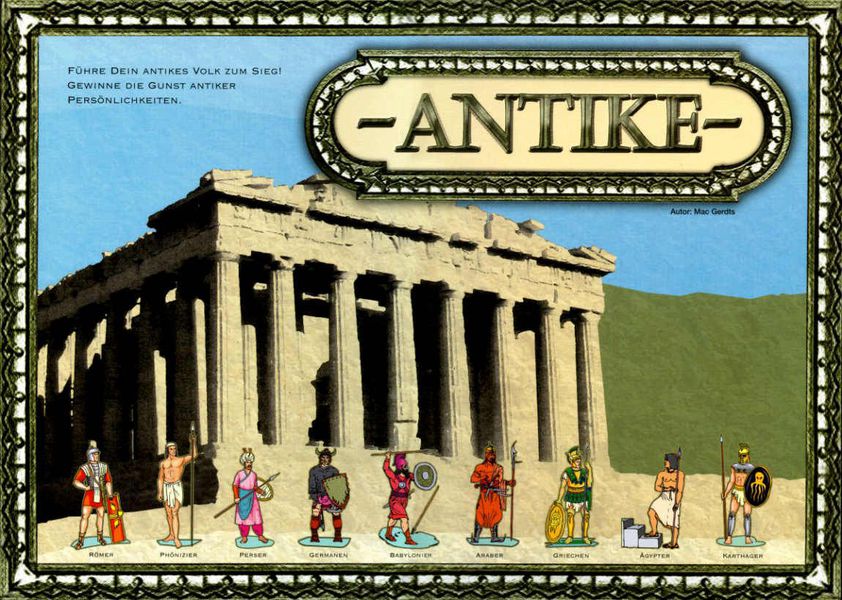
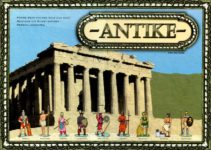
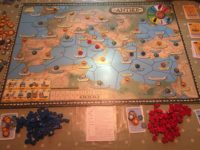

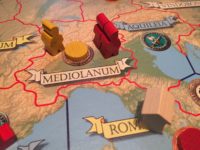



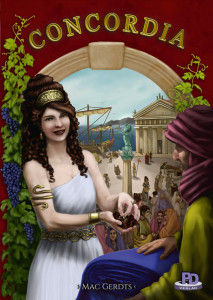
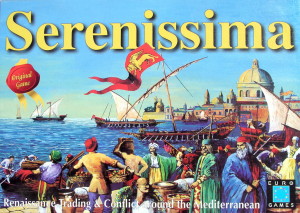

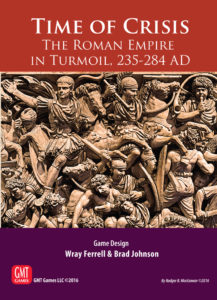
Sam says
Although it is a hugely superior game to say, Risk, for instance, I did feel Antike's age slightly, hailing from the early 2000s when the games coming out of Germany, though clever, seemed to be getting drier and drier. I like the rondel a lot (the designer has used it in other games such as Hamburgum); the depth of play here around those simple actions is something of a design triumph. The fact it's not a straight-up war game but a struggle to evolve in a broader sense is appealing too. But I also found it went on rather long, and was replete with head-scratching pauses... compared to something like the comparatively snappy Spheres of Influence (or even the far-longer and more complex Twilight Imperium!) I didn't feel the fun in a big way. However I should caveat that by saying I played the 2004 version of Antike and the game was rereleased with simpler rules and a shorter play-time - and Antike Mk I has me intrigued enough to try it.